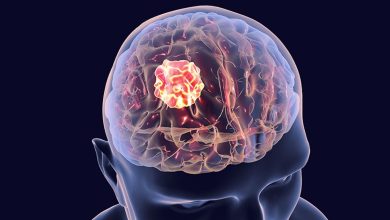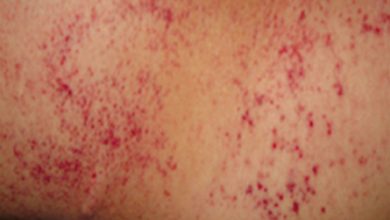Uterine Cancer Symptoms Treatment

With the development of uterine cancer, medicine, the diagnosis, diagnosis and treatment process of many diseases in the field of medicine is getting easier every day. One of the diseases that could not be diagnosed and treated centuries ago but can be treated today is uterine cancer. Uterine cancer, which occurs in the uterine region of women, is a treatable disease when diagnosed early.
What is Uterine Cancer?
The tissues formed by the cells in the body of a healthy person regularly grow, divide and renew themselves at the same time. However, the tissues in the body, which encounter some health problems, are affected by these problems, and therefore, both growth stages and developmental stages can be at abnormal values. At this point, a benign or malignant tumor occurs in the body. If this tumor is malignant, it is also called “Cancer” in the medical field. Uterine cancer is a disease caused by a malignant tumor in the uterus of women. Cervical cancer is seen in two different forms, intrauterine cancer and sarcoma. Endometrium, known as uterine cancer, occurs in the lining of the uterus. Sarcoma uterine cancer, on the other hand, is composed of muscles and tissues in the uterus, and is also less common than intrauterine cancer. In this case, the symptoms of both types of uterine cancer show themselves differently, while Sarcoma uterine cancer spreads faster in the body.
What Are the Symptoms of Uterine Cancer?
The most important point in the treatment of uterine cancer is early detection. Therefore, it plays an important role in the early diagnosis and treatment of this disease that the patient consults a specialist without wasting time with symptoms such as excessive bleeding, excessive discharge, post-menopausal bleeding. The most important symptom of uterine cancer is small or large amount of bleeding despite the menopause period. At the same time, symptoms such as foul-smelling and watery discharge from the vagina, bleeding after intercourse, intermediate bleeding occurring outside the menstrual cycle in non-menopausal women, a feeling of discomfort in the abdomen during and after intercourse, and extreme pain and visible swelling are the clearest signs of uterine cancer. seen as symptoms. In addition, if the patient did not apply to a specialist by ignoring the symptoms and during this time, the uterine cancer has moved to advanced stages, the patient may experience severe weakness, constipation and excessive weight loss.
Why Does Uterine Cancer Occur? What are the Causes?
Although there are many developments in the field of medicine with the development of technology and science, experts and medical scientists state that while the cause of uterine cancer cannot be determined exactly, this situation is dependent on hormones. An irregular state of hormones in the female body prepares the environment for uterine cancer quickly, while at the same time interacting with many factors that accelerate uterine cancer.
What Are the Factors Accelerating the Occurrence of Uterine Cancer?
Uterine cancer is a type of disease that is frequently seen in the field of gynecology, that is, gynecology, especially in recent times. While uterine cancer, which is rarely seen in women who have not yet reached the age of 40, is also seen in almost 3 out of 100 women, uterine cancer is very common, especially in women aged 60 and over. Although the exact causes of uterine cancer cannot be determined, it is stated by experts that many factors create the environment for this disease. One of these factors is the hormone estrogen. Namely; Estrogen, a hormone produced in the ovaries, is not produced by the ovaries during menopause. While the hormone estrogen can be given to the body through drugs with hormone therapy, the patient’s taking this hormone alone lays the groundwork for uterine cancer. In this case, if the hormone estrogen and progesterone are also taken, then the risk of uterine cancer is prevented. In addition to this hormone factor, at the same time;
- have never given birth,
- Don’t be too constipated
- Having an overweight body
- Irregular menstrual cycle
- infertility conditions,
- Uterine cancer is a genetic disease in the family,
- Use of tamoxifen for reasons such as prevention of breast cancer,
- Having diseases such as high blood pressure, diabetes, gall bladder and thyroid,
smoking,
Factors such as the use of birth control pills at a high rate for a very long time also increase the rate in line with the formation of uterine cancer in the body and prepare the environment for this disease. Therefore, the incidence of uterine cancer is even higher in women with a history and history in these matters.
With which methods is the diagnosis of uterine cancer made to the patient?
Although there is not yet a screening test for the diagnosis of uterine cancer in the medical field, gynecologists can diagnose patients who come with these complaints by suggesting the symptoms of uterine cancer, by applying any of four different methods according to the degree of suitability. These methods are; endometrial biopsy, vaginal ultrasound, hysteroscopy and abortion methods. With the endometrial biopsy method; The gynecologist takes tissue from the uterus with a thin plastic catheter, examines it with a microscope, and makes a diagnosis. With the vaginal ultrasound method; The inside of the uterus, its thickness and size are controlled with an ultrasound device. With another method, hysteroscopy; It is a surgical method in which intervention is performed with an intrauterine illuminated instrument. The last method is the abortion method. With the abortion method; The cervix is enlarged by the gynecologist and this tissue is removed by scraping with a syringe-like instrument. Many women have a smear test for uterine cancer control, but the smear test; It is a test method that only sees the signs of cervical cancer while not seeing the signs of uterine cancer.
How Is Uterine Cancer Treated?
Uterine cancer treatment is shaped as a result of the diagnosis and diagnosis made by the gynecologist. In general, uterine cancer surgery is performed according to the stage of the disease in the province, and the condition of the uterus is observed while the process of the disease is observed. After this stage, the entire uterine region can be removed if the gynecologist deems it necessary. If the patient is still young and wants to have a child, then the gynecologist can administer hormone therapy with drugs according to the stage of the disease or recommend chemotherapy to the patient. However, some cases of uterine cancer can be advanced when diagnosed. In such cases, it may be too late for drugs, hormone therapy and chemotherapy. If the disease has reached its final stage after diagnosis, even if the patient is young and wants to have a child, first of all, in order to restore the patient’s health, all of the uterus and ovaries are surgically removed, and the malignant tumor that causes cancer in the uterus is removed, and the patient’s productivity is terminated. Thus, the treatment of uterine cancer is radically cured.
What are the Ways to Prevent Uterine Cancer?
If there are diseases such as diabetes, thyroid disease and blood pressure disease, the most basic way of protection from uterine cancer is to be in contact with gynecology specialists. In addition, it is one of the most accurate methods for women to use the necessary hormone drugs, especially in the first periods of menopause, by getting support from a gynecologist.




